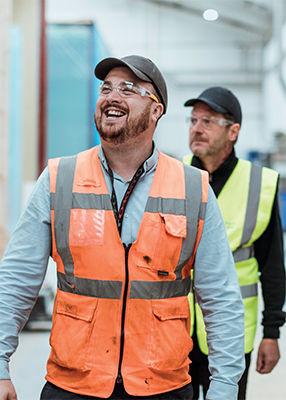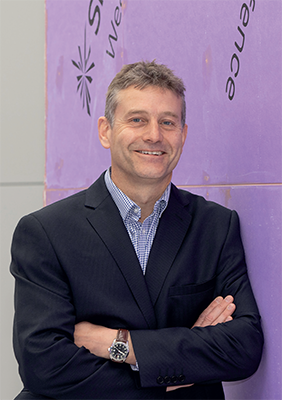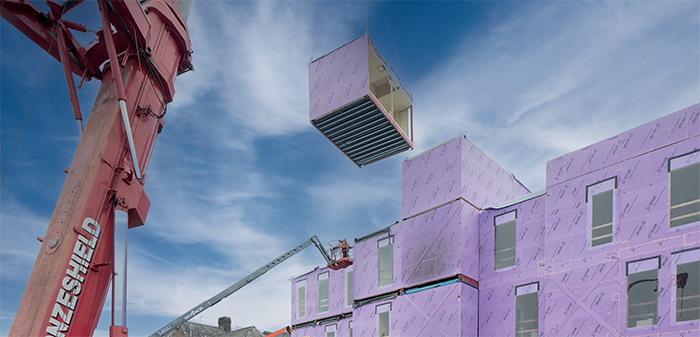Long-established modular building manufacturer, Premier Modular, is investing in technology and processes in its bid to become net zero by 2035
Sustainable construction at pace
Premier’ is an appropriate name for Premier Modular Ltd (Premier). Founded in 1956 in a small factory in Blackburn, England, as a manufacturer of timber garages, it lays claim to being one of the first modular construction companies in the United Kingdom. It was a good time to get into the business, as the UK had a desperate need for rebuilding after the devastation of WW2.
By the early 1960s it had expanded into building schools and healthcare facilities, to meet the needs of the Baby Boom and growing National Health Service. In 1968 it began manufacturing full-scale modular buildings.
 Premier is now based around 120 miles east of its original home, in the village of Brandesburton in East Yorkshire. Its high quality, bespoke, permanent and temporary solutions are in demand, for customers across public sectors, supporting the UK’s infrastructure projects, alongside working in both private residential and a number of commercial/industrial areas. Revenues are in the region of £130 million and have been doubling year-on-year since 2018, which is quite an achievement in light of disruption from the Covid-19 pandemic and other events.
Premier is now based around 120 miles east of its original home, in the village of Brandesburton in East Yorkshire. Its high quality, bespoke, permanent and temporary solutions are in demand, for customers across public sectors, supporting the UK’s infrastructure projects, alongside working in both private residential and a number of commercial/industrial areas. Revenues are in the region of £130 million and have been doubling year-on-year since 2018, which is quite an achievement in light of disruption from the Covid-19 pandemic and other events.
“We offer a range of services to our clients, from initial design through project management, completion and aftercare support,” says David Harris, Managing Director. Projects range from single relocatable buildings to large bespoke buildings of up to six storeys.
“The solutions are often incredibly complex and have to be delivered to the highest quality at almost unbelievable pace,” David explains. “That takes a blend of skillsets, from design and manufacturing, through construction and installation to Mechanical and Electrical (M&E) and finishing trades.” He goes on to say that Premier focuses on bespoke solutions for its customers’ exact needs, which may seem contradictory to its role as a factory-based producer of modular buildings, but Premier is constantly driving for new and better ways of working. The buildings it makes today are quite different from those being built just five years ago, never mind 50 years ago.
“It’s the skills of our people, including ‘soft’ skills, that lead to a better understanding of clients’ needs and enable Premier to produce individual solutions with the ‘wow’ factor. Modular building is the sustainable, responsible future of construction,” he says and is keen to highlight the company’s focus on Environmental, Social and Governance (ESG) issues.
“We’re making huge efforts to be net zero by 2035. We implement low and zero carbon technology, use renewable energy, generate zero waste to landfill in our factories and produce energy-efficient buildings,” David says. “While traditional construction is struggling with labour shortages, we have access to the fullest range of skillsets. Our factories are controlled environments, with clearly defined manufacturing processes that deliver high quality solutions, on time, within clients’ budgets.”
2022 has seen industry and international recognition of its efforts. In April, it received the first ESG award in Europe for a manufacturing company; two months later, it delivered a new hospital building with audited carbon emissions 48 per cent lower than standard. It’s looking to build on these gains for the future and, in February, launched the Premier Academy; a new training academy that has enabled Premier to triple its annual apprentice intake.
“Modular solutions support the circular economy with highly-efficient manufacture, rigorous quality control and significant reuse of products or even buildings,” he continues. “Our modular buildings are reusable, flexible and reconfigurable, which means clients can adapt them to changing needs and to meet decarbonisation goals.”
Additionally, modular solutions offer lower levels of onsite disruption which is an advantage, crucial to sectors such as healthcare and education. Programme times can be halved, massively reducing disruptive site deliveries and labour hours. When Discovery Special Academy in Tees Valley Multi Academy Trust, in North East England, needed modular classrooms for children with special educational needs while their permanent facility was built, it took Premier just eight weeks to design, manufacture and install a fully-serviced single-storey block with five modular classrooms with sensory areas; a hall with offices; cleaning facilities; accessible toilets with motorised sinks; and changing rooms.
“A current project we’re really excited about is Luminate Printworks, a much-needed city centre education facility. It’s complex, being built on a gantry alongside a protected building. The new 11 classroom space is over 1150 square metres,” says David. Onsite installation was completed in just four days in October 2022; completion is set for January 2023.
The past decade has presented business with major challenges, from Brexit to Covid-19 and the war in Ukraine. Energy, raw material and wage inflation have become an everyday reality. David is confident that Premier Modular is fit for the future.
“Whatever happens, the common factor is the ability to adapt – quickly,” he says.
www.premiermodular.co.uk
